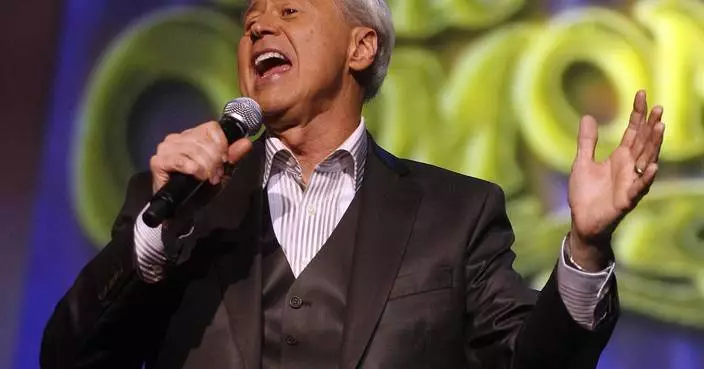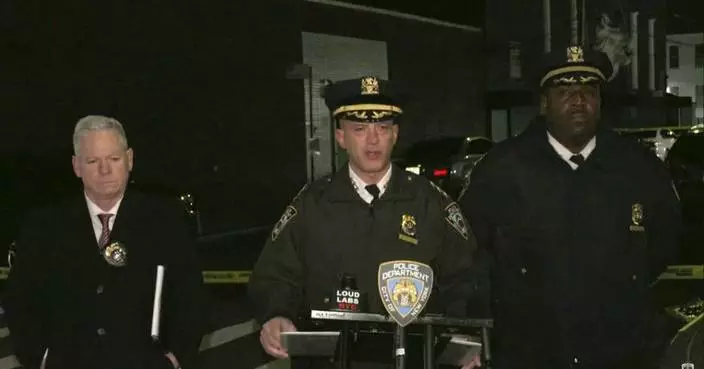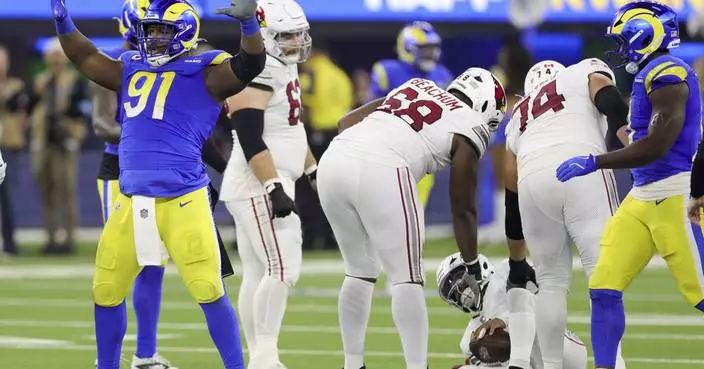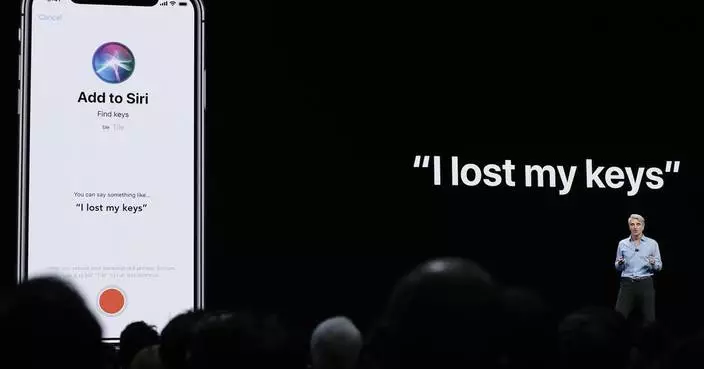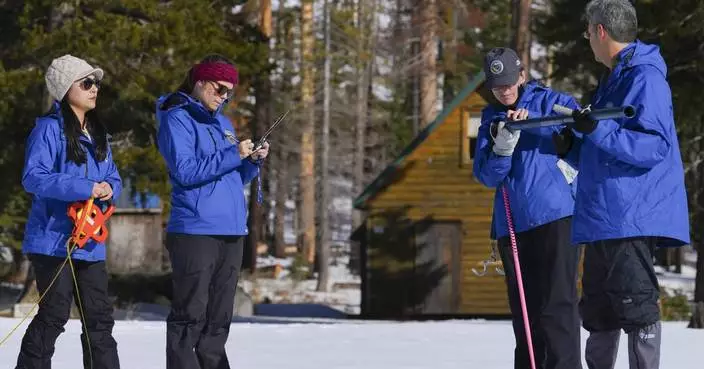WASHINGTON (AP) — U.S. presidents usually at least pay lip service to being leaders of the free world, at the helm of a mighty democracy and military that allies worldwide can rally around and reasonably depend on for support in return.
Not so under President-elect Donald Trump, a critic of many existing U.S. alliances, whose win of a second term this week had close European partners calling for a new era of self-reliance not dependent on American goodwill.
Click to Gallery
Republican presidential candidate former President Donald Trump meets with Israeli Prime Minister Benjamin Netanyahu at his Mar-a-Lago estate, Friday, July 26, 2024, in Palm Beach, Fla. (AP Photo/Alex Brandon)
Turkish President Recep Tayyip Erdogan, left, speaks with French President Emmanuel Macron at a plenary session during the European Political Community (EPC) Summit at the Puskas Arena in Budapest, Thursday, Nov. 7, 2024. (AP Photo/Denes Erdos)
FILE - In this Saturday, June 29, 2019, file photo, U.S. President Donald Trump, left, meets with Chinese President Xi Jinping during a meeting on the sidelines of the G-20 summit in Osaka, Japan.(AP Photo/Susan Walsh, File)
FILE - In this June 28, 2019, file photo, President Donald Trump, right, shakes hands with Russian President Vladimir Putin, left, during a bilateral meeting on the sidelines of the G-20 summit in Osaka, Japan. (AP Photo/Susan Walsh, File)
Leader of the free world has never been a role Trump has embraced. The world has gotten the message
Leader of the free world has never been a role Trump has embraced. The world has gotten the message
Republican presidential nominee former President Donald Trump points to the crowd at an election night watch party, Wednesday, Nov. 6, 2024, in West Palm Beach, Fla. (AP Photo/Julia Demaree Nikhinson)
“We must not delegate forever our security to America,” French President Emmanuel Macron said at a European summit Thursday.
Based on Trump’s first term and campaign statements, the U.S. will become less predictable, more chaotic, colder to allies and warmer to some strongmen, and much more transactional in picking friends globally than before. America’s place in world affairs and security will fundamentally change, both critics and supporters of Trump say.
His backers say he simply will be choosier about U.S. alliances and battles than previous presidents.
When it comes to the U.S. role on the world stage, no more talk of the country as leader of the free world, said Fiona Hill, a former Russia adviser to Trump and preceding U.S. presidents.
Maybe “the free-for-all world, his leadership?” Hill suggested in a recent European Council for Foreign Relations podcast. “I mean, what exactly is it that we’re going to be leading here?”
Trump, with varying degrees of consistency, has been critical of NATO and support for Ukraine and Taiwan, two democracies under threat that depend on U.S. military support to counter Russia and China.
Trump has shown little interest in the longstanding U.S. role as anchor of strategic alliances with European and Indo-Pacific democracies. Before the election, partners and adversaries already were reevaluating their security arrangements in preparation for Trump's possible return.
European allies in particular bolstered efforts to build up their own and regional defenses, rather than rely on the U.S. as the anchor of NATO, the mutual-defense pact both Trump and running mate JD Vance have spoken of scathingly. Within hours of Trump’s win over Vice President Kamala Harris, defense chiefs of France and Germany scheduled talks to address the impact.
Canadian Prime Minister Justin Trudeau revived a special Cabinet committee on Canada-U.S. relations to address concerns about another Trump presidency. Former Australian Prime Minister Kevin Rudd, now ambassador to the U.S., whose government is investing in an American defense partnership, deleted old tweets that included calling Trump “the most destructive president in U.S. history.”
Israeli Prime Minister Benjamin Netanyahu and Russian President Vladimir Putin have appeared to shape war strategies with hopes that Trump could allow them freer rein.
Victoria Coates, a security adviser to Trump in his first term, rejects any portrayal of him as isolationist.
“I think he is extremely judicious about the application of the American military, and about potentially getting embroiled in conflicts we can’t resolve,” she said recently on a security podcast.
As evidence of his engagement globally, Coates pointed to Trump's support of Israel as it wages wars against Iranian-backed militant groups in Gaza and Lebanon.
She called Iran's nuclear program the “greatest concern” abroad and suggested its progress toward the possibility of nuclear weapons meant Trump might have to act more forcefully than in his first term, when he surged sanctions on Iran in what he called a “maximum pressure” campaign.
Trump, long an open admirer of Putin, has been most consistent in pointing to support for Ukraine as a possible policy change.
Philip Breedlove, a former Air Force general and top NATO commander, said he can see both positive expectations and deep concerns for Ukraine and NATO in the next four years under Trump.
While Trump’s NATO rhetoric during his first administration was often harsh, it didn’t lead to any actual U.S. troop reductions in Europe or decreased support for the alliance, Breedlove said. And 23 NATO nations are spending at least 2% of their gross domestic product on defense, compared with 10 in 2020 — helping counter a persistent Trump complaint.
More concerning, Breedlove said, is Trump’s vow to end the war in Ukraine right away.
While that goal is noble, “ending wars on terms that are appropriate is one thing. Capitulating to an enemy in order to stop a conflict is a different thing. And that’s what worries me,” Breedlove said.
He and others have warned that an end to the war that gives Russia additional territory in Ukraine will set a bad precedent. European nations fear it will embolden Putin to come after them.
So do supporters of Taiwan, a democratically run island that China has said it will one day annex, by force if necessary. Trump has ranged from saying Taiwan should pay the U.S. for its defense support to claiming he could charm Chinese President Xi Jinping out of threatening Taiwan.
“One thing that does make me nervous about Trump vis-à-vis the Taiwan Strait is his reliance on unpredictability, his reliance on being something of a chaotic actor in a situation that is finely balanced," said Paul Nadeau, an assistant professor of international affairs and political science at Temple University's Japan campus.
The world that Trump will face has changed, too, with Russia, North Korea, Iran and China further consolidating in a loose, opportunistic alliance to counter the West, and particularly the U.S.
In places where the U.S. has withdrawn, Russia, China and at times Iran have been quick to extend their influence, including in the Middle East.
During his first term, Trump repeatedly vowed to pull all U.S. forces out of Iraq and Syria, at times blindsiding Pentagon officials with sudden statements and tweets that left officials fumbling for answers.
A backlash from some Republican lawmakers and counterproposals by U.S. military leaders slowed those plans, including suggestions that some U.S. troops should remain in Syria to protect oil sites. The U.S. still has about 900 troops in Syria, which could plunge under Trump.
The number of U.S. forces in Iraq is already dwindling based on a new agreement between the Biden administration and Baghdad. The plan would wrap up the U.S.-led coalition’s mission to fight the Islamic State group by next year but likely shift at least some U.S. troops to northern Iraq to support the fight against IS in Syria.
Trump's first term — followed by President Joe Biden's foreign policy becoming consumed by unsuccessful efforts to reach cease-fires in the Middle East — already spurred allies to start building up their own military strength and that of smaller regional alliances.
“Factored into calculations is there’s going to be less United States than before” on the world stage, Hill said. “There can’t be this dangerous dependency on what happens in Washington, D.C.”
AP reporters Didi Tang and Tara Copp in Washington and Ayaka McGill in Tokyo contributed.
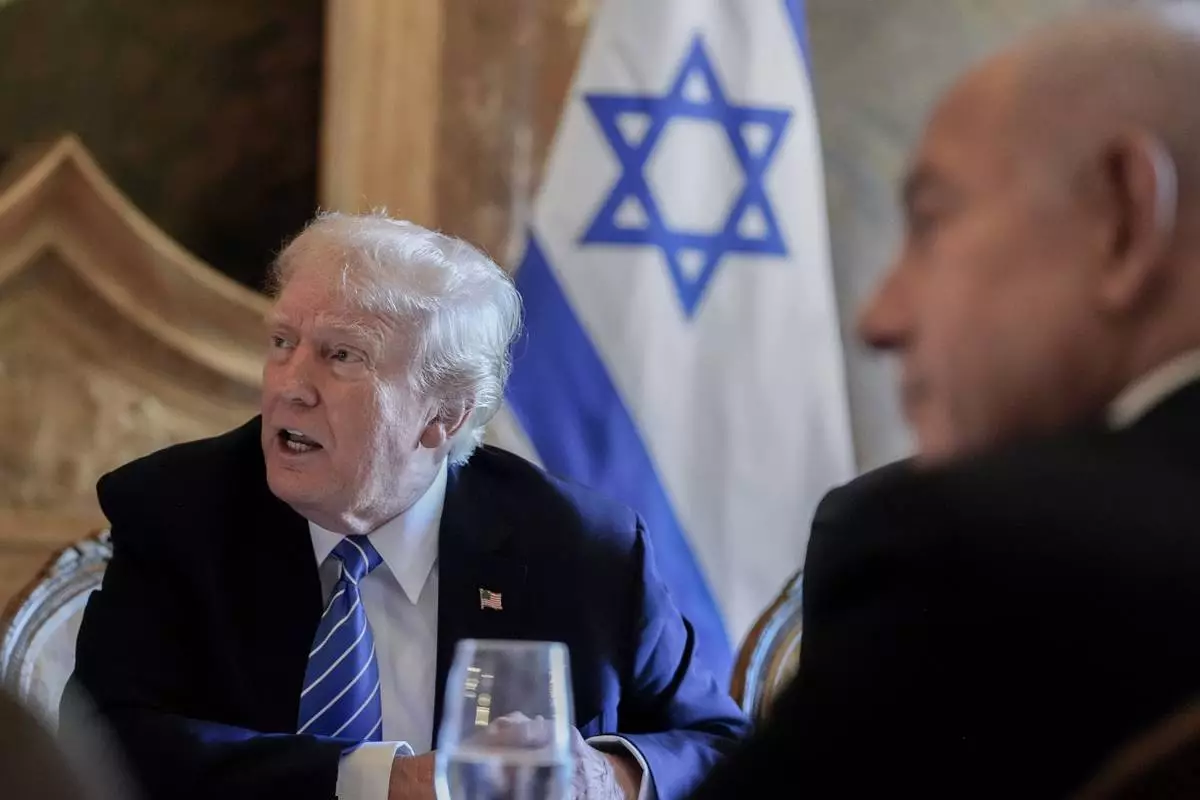
Republican presidential candidate former President Donald Trump meets with Israeli Prime Minister Benjamin Netanyahu at his Mar-a-Lago estate, Friday, July 26, 2024, in Palm Beach, Fla. (AP Photo/Alex Brandon)
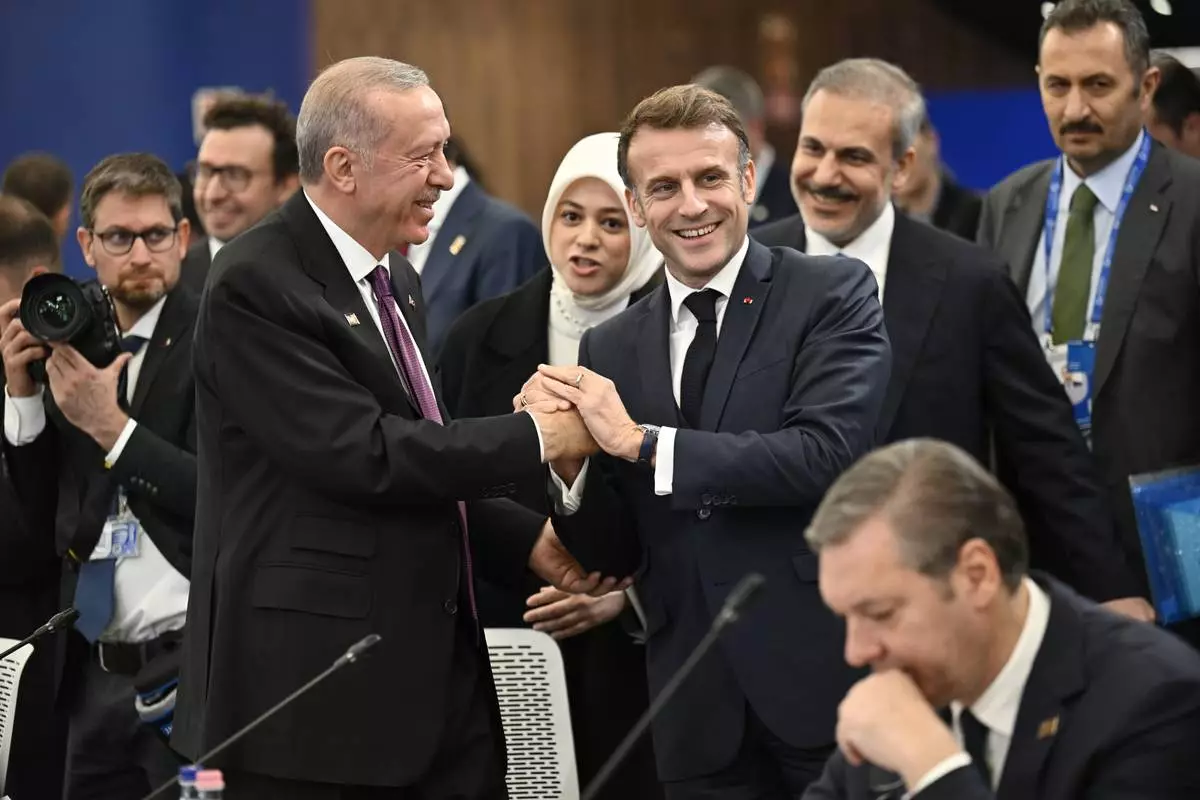
Turkish President Recep Tayyip Erdogan, left, speaks with French President Emmanuel Macron at a plenary session during the European Political Community (EPC) Summit at the Puskas Arena in Budapest, Thursday, Nov. 7, 2024. (AP Photo/Denes Erdos)
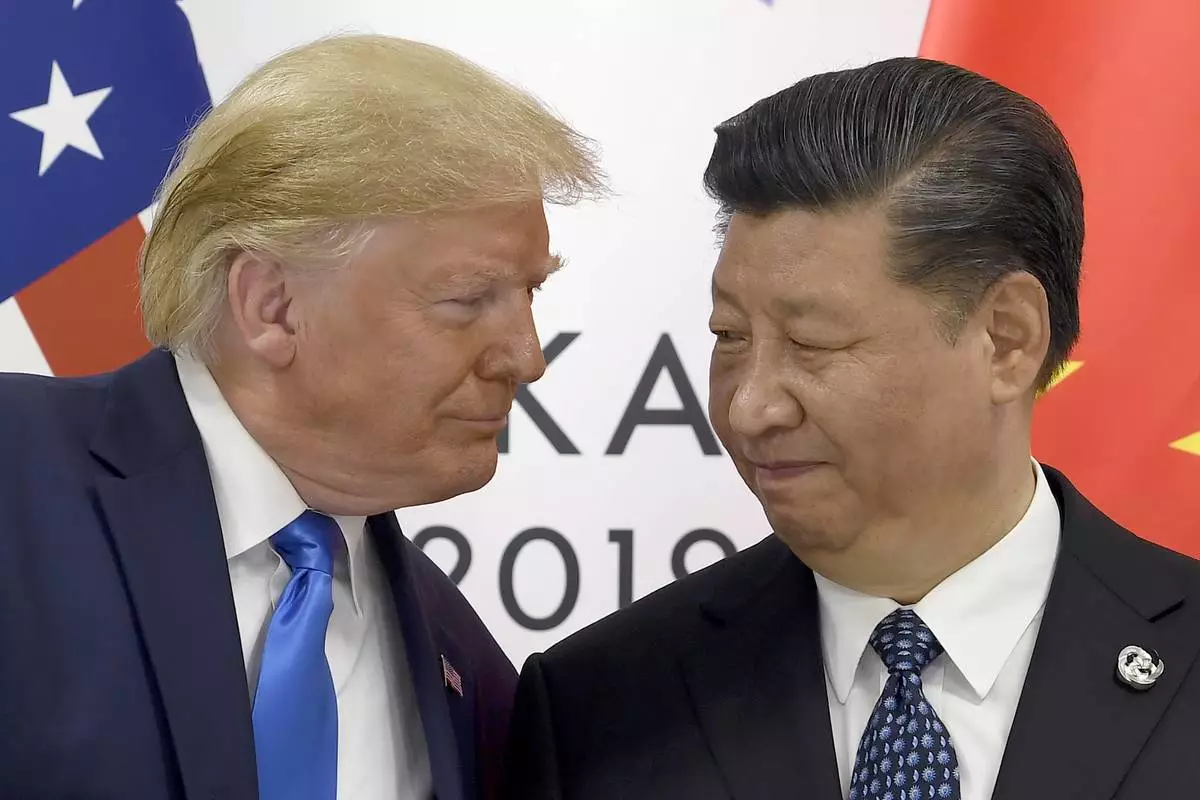
FILE - In this Saturday, June 29, 2019, file photo, U.S. President Donald Trump, left, meets with Chinese President Xi Jinping during a meeting on the sidelines of the G-20 summit in Osaka, Japan.(AP Photo/Susan Walsh, File)
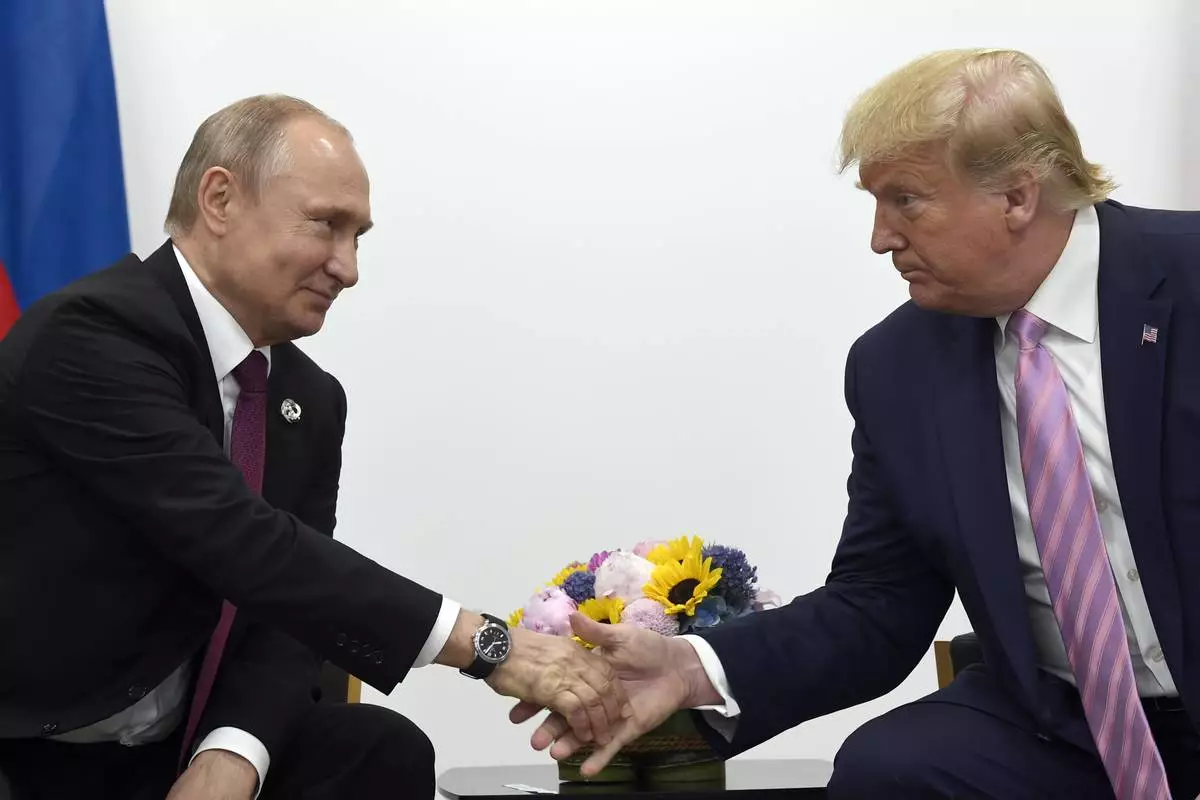
FILE - In this June 28, 2019, file photo, President Donald Trump, right, shakes hands with Russian President Vladimir Putin, left, during a bilateral meeting on the sidelines of the G-20 summit in Osaka, Japan. (AP Photo/Susan Walsh, File)
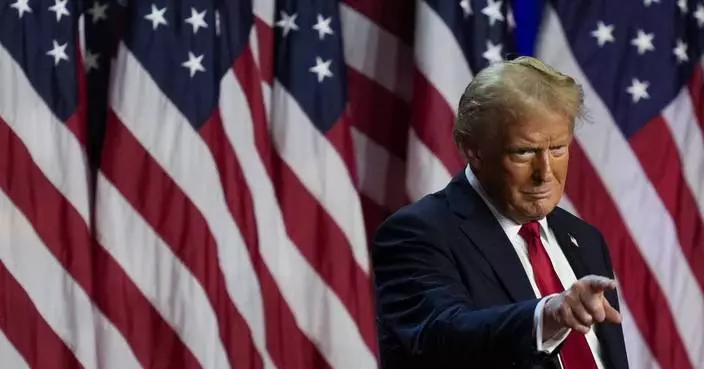
Leader of the free world has never been a role Trump has embraced. The world has gotten the message
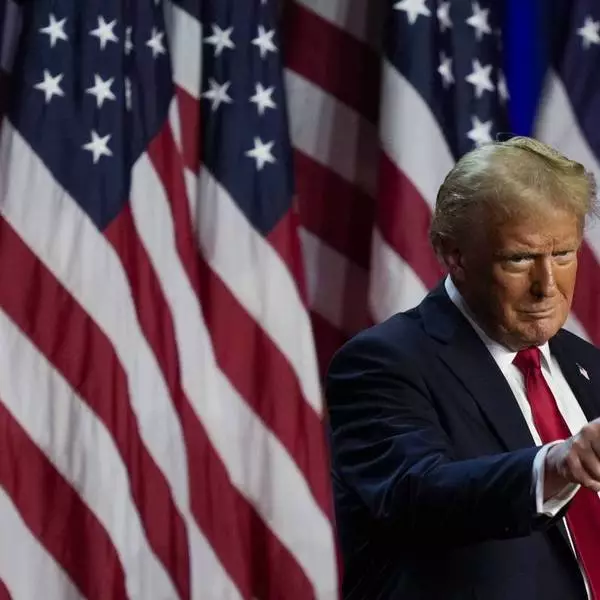
Leader of the free world has never been a role Trump has embraced. The world has gotten the message
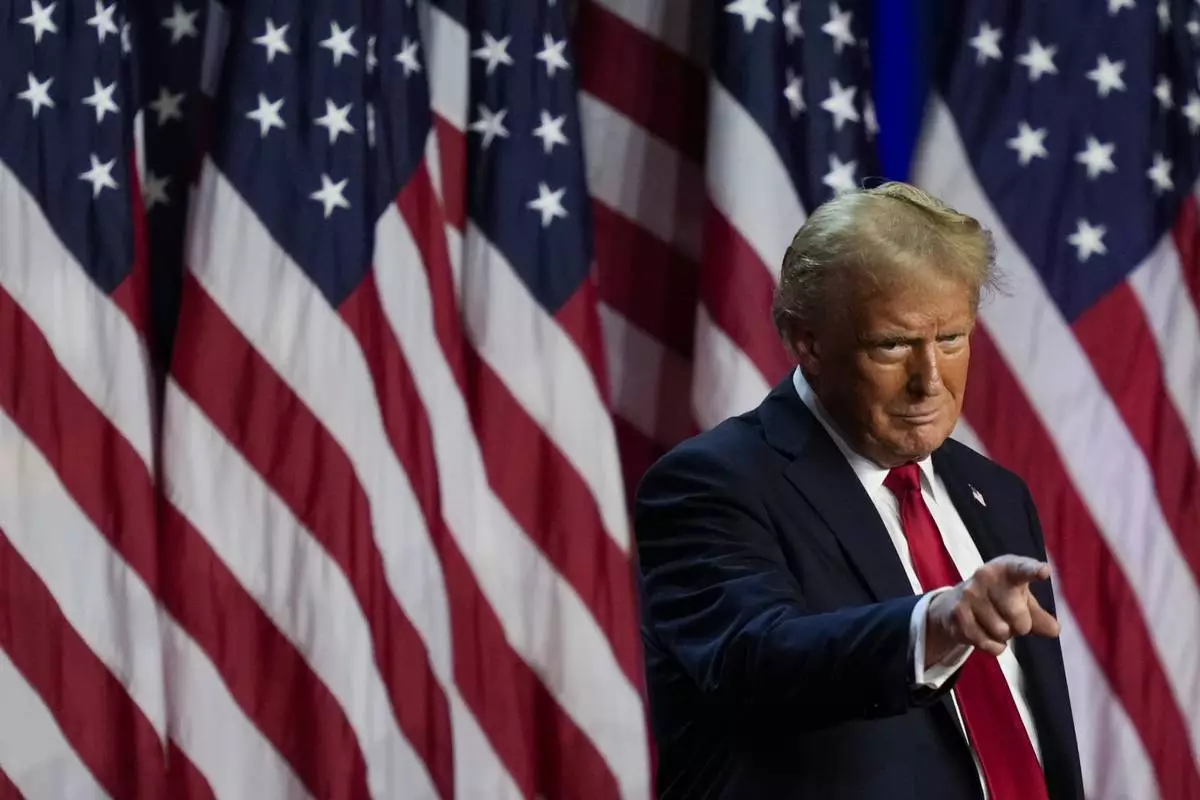
Republican presidential nominee former President Donald Trump points to the crowd at an election night watch party, Wednesday, Nov. 6, 2024, in West Palm Beach, Fla. (AP Photo/Julia Demaree Nikhinson)
SEOUL, South Korea (AP) — South Korea’s anti-corruption agency on Friday dispatched investigators to execute a warrant to detain impeached President Yoon Suk Yeol over his short-lived martial law decree last month, as hundreds of his supporters gathered at his residence in Seoul, vowing to block their approach.
Investigators of the Corruption Investigation Office for High-Ranking Officials were seen loading boxes into several vehicles before leaving their building in the city of Gwacheon early in the morning. Television footage later showed some of those vehicles weaving between police buses that tightly packed and barricaded the streets near Yoon’s residence.
The office didn’t immediately confirm how many investigators were sent.
It wasn’t clear whether the president would cooperate with authorities trying to detain him. Yoon in a defiant New Year’s message to conservative supporters rallying outside his residence said he will “fight to the end” against “anti-state forces.” His lawyers have described the warrant to detain him as “invalid” and “illegal.”
A Seoul court issued a warrant for Yoon’s detention on Tuesday after he evaded multiple requests to appear for questioning and blocked searches of his office in Seoul, hindering an investigation into whether his ill-conceived power grab on Dec. 3 amounted to rebellion.
The warrant is valid for one week, and investigators may make another attempt to detain Yoon if they are unable to do so on Friday.
Thousands of police officers were gathered at Yoon’s residence. There were no immediate reports of clashes with protesters.
If Yoon is detained, the anti-corruption agency will have 48 hours to investigate him and either request a warrant for his formal arrest or release him. Yoon’s defense minister, police chief and several top military commanders have already been arrested over their roles in the martial law enactment.
Yoon’s lawyers have argued the court’s detainment warrant is invalid, claiming that the anti-corruption agency lacks the legal authority to investigate rebellion charges. They also accuse the court of bypassing a law that says locations potentially linked to military secrets cannot be seized or searched without the consent of the person in charge.
Oh Dong-woon, the anti-corruption agency’s chief prosecutor, has indicated that police forces might be deployed if Yoon’s security service resists the detention attempt.
But Yoon’s legal team issued a statement on Thursday warning that any attempt by the anti-corruption agency to use police units for his detention would exceed their legal authority. The lawyers said police officers could face arrest by either the “presidential security service or any citizens” if they try to detain Yoon. They didn’t elaborate further on the claim.
South Korean law permits anyone to make an arrest to stop an active crime, and critics accused Yoon of inciting his supporters to obstruct attempts to detain him.
Yoon Kap-keun, the president’s lawyer, filed a challenge with the Seoul Western District Court on Thursday to block both the detention warrant for Yoon Suk Yeol and a related search warrant for his residence. The lawyer argued that both warrants violate criminal laws and the constitution.
The liberal opposition Democratic Party, which drove the legislative vote that impeached Yoon Suk Yeol on Dec. 14 over his imposition of martial law, accused the president of trying to mobilize his supporters to block his detention and called for law enforcement authorities to execute the warrant immediately.
Braving subfreezing temperatures, thousands of Yoon’s supporters rallied for hours near his residence on Thursday amid a heavy police presence, waving South Korean and American flags while chanting, “Nullify the impeachment!” and “We will protect President Yoon Suk Yeol!” Officers removed some protesters who laid down on a road leading to the entrance of Yoon’s residence, but there were no immediate reports of major clashes.
Some experts believe the anti-corruption agency, which is leading a joint investigation with police and military authorities, would not risk clashing with Yoon’s security service, which has said it will provide security to Yoon in accordance with the law. The office may instead issue another summons for Yoon to appear for questioning if they are not able to execute the detainment warrant by the Jan. 6 deadline.
Yoon’s presidential powers were suspended following a National Assembly vote to impeach him on Dec. 14 over his imposition of martial law, which lasted only hours but has triggered weeks of political turmoil, halted high-level diplomacy and rattled financial markets. Yoon’s fate now lies with the Constitutional Court, which has begun deliberations on whether to uphold the impeachment and formally remove Yoon from office or reinstate him.
To formally end Yoon’s presidency, at least six justices on the nine-member Constitutional Court must vote in favor.
The National Assembly voted last week to also impeach Prime Minister Han Duck-soo, who became acting president after Yoon’s powers were suspended, over his reluctance to fill three Constitutional Court vacancies ahead of the court’s review of Yoon’s case.
Facing growing pressure, the new acting president, Deputy Prime Minister Choi Sang-mok, appointed two new justices on Tuesday, which possibly increased the chances of the court upholding Yoon’s impeachment.
Yoon’s imposition of martial law ended after only six hours when the National Assembly voted 190-0 to lift it despite attempts by heavily armed soldiers to prevent them from voting.
Yoon has defended his martial law decree as a necessary act of governance, portraying it as a temporary warning against the Democratic Party, which he has described as an “anti-state” force obstructing his agenda with its legislative majority.
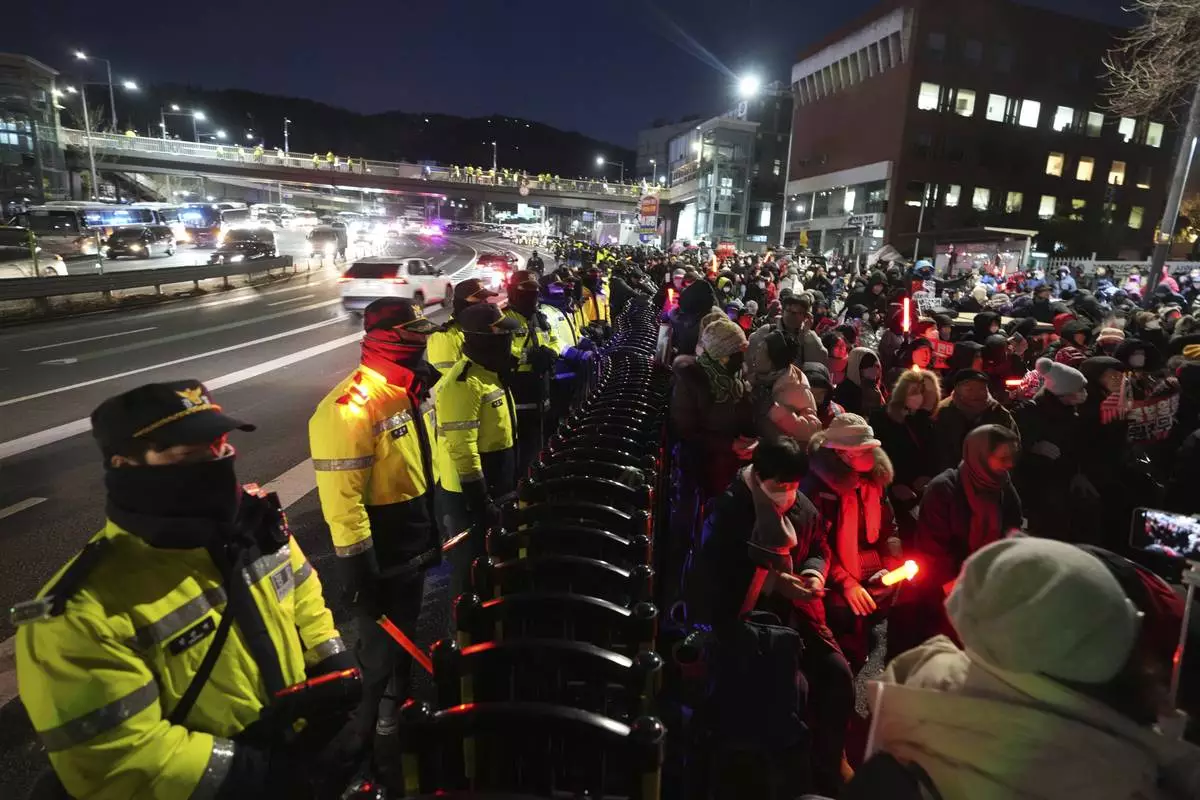
Supporters of impeached South Korean President Yoon Suk Yeol stage a rally to oppose a court having issued a warrant to detain Yoon, as police offices stand guard near the presidential residence in Seoul, South Korea, Friday, Jan. 3, 2025. (AP Photo/Lee Jin-man)
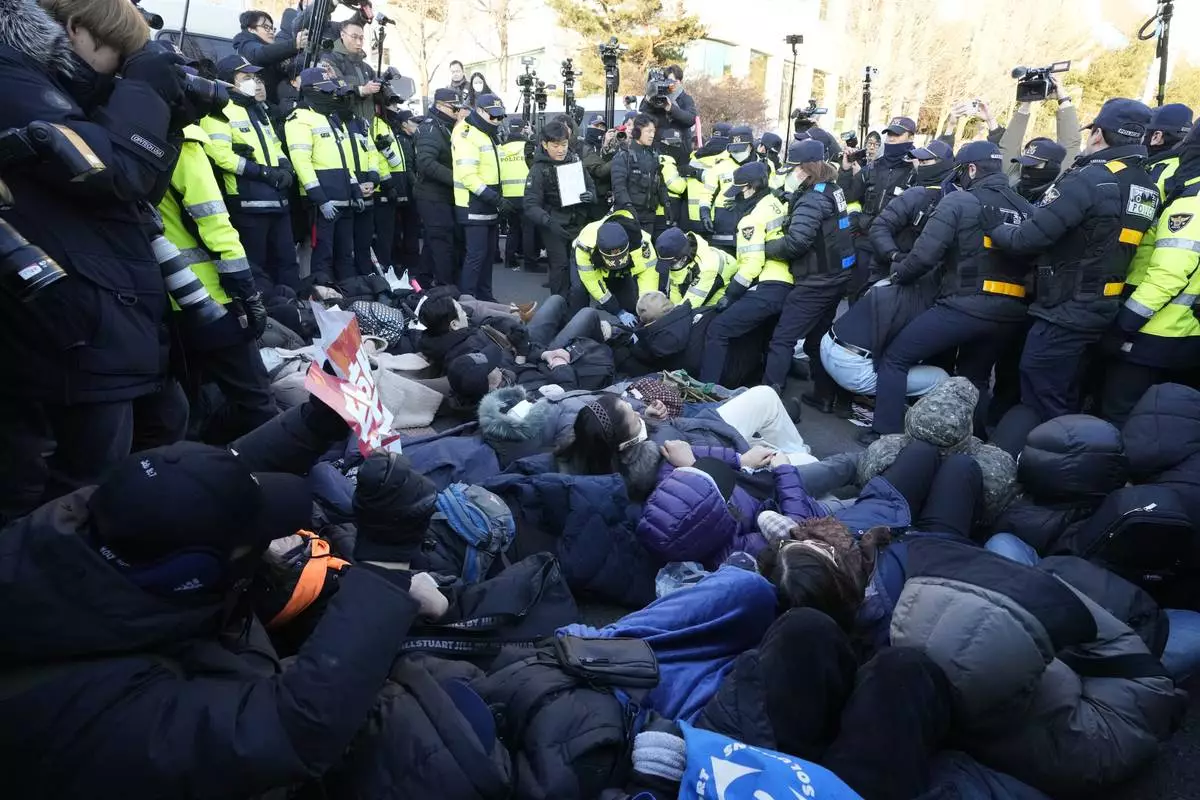
Police officers drag away supporters of impeached South Korean President Yoon Suk Yeol as Yoon faces potential arrest after a court on Tuesday approved a warrant for his arrest, near the presidential residence in Seoul, South Korea, Thursday, Jan. 2, 2025. (AP Photo/Ahn Young-joon)
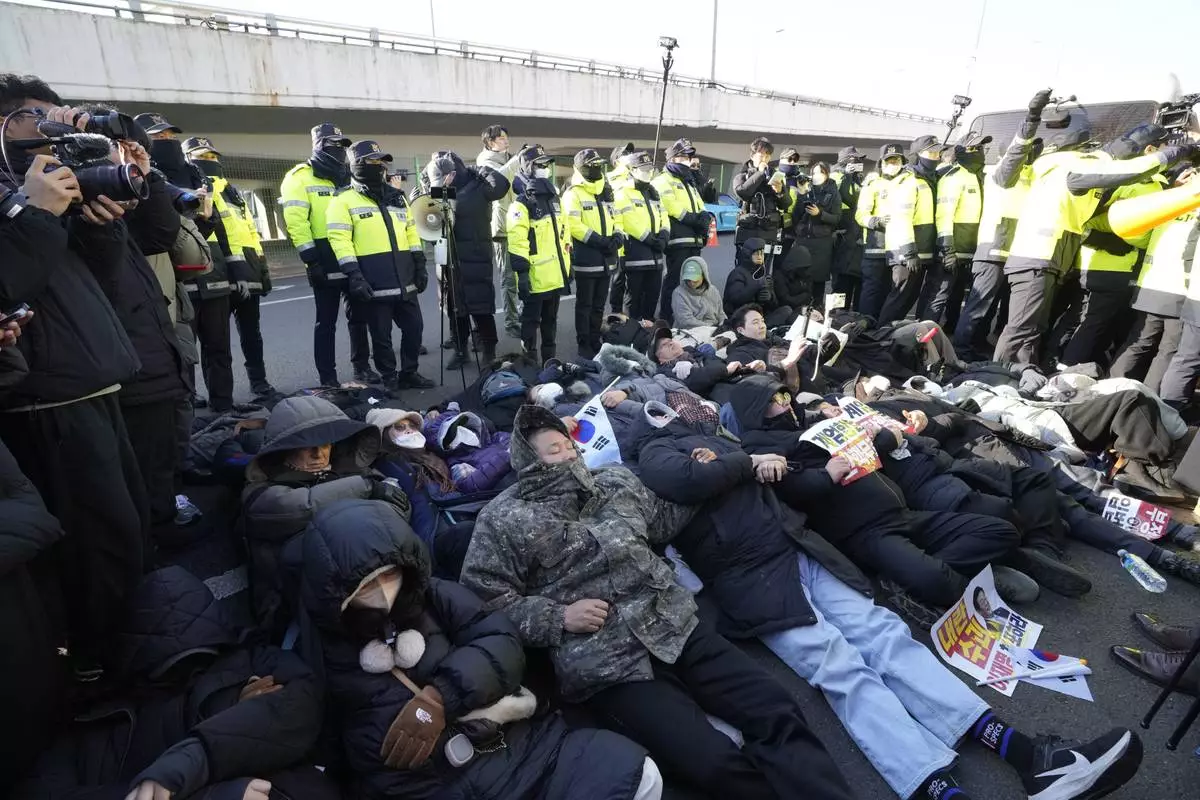
Supporters of impeached South Korean President Yoon Suk Yeol lie down on the ground as Yoon faces potential arrest after a court on Tuesday approved a warrant for his arrest, near the presidential residence in Seoul, South Korea, Thursday, Jan. 2, 2025. (AP Photo/Ahn Young-joon)
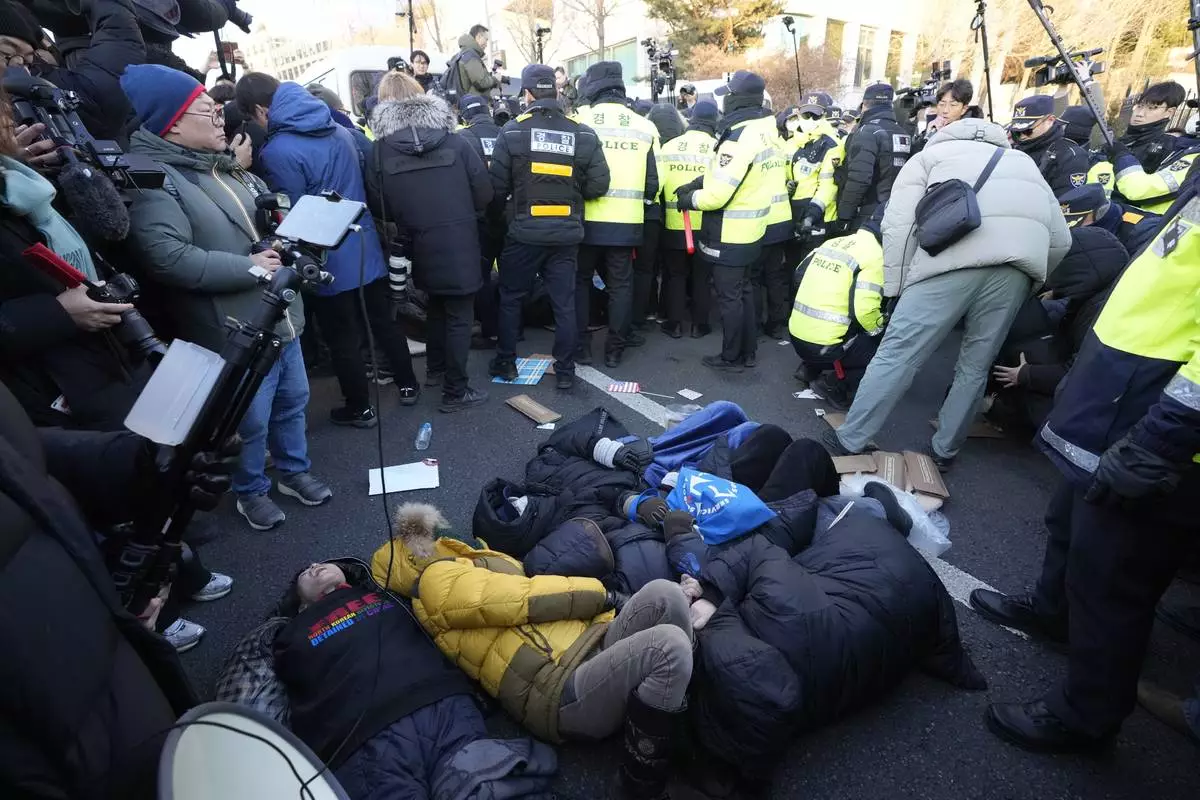
Supporters of impeached South Korean President Yoon Suk Yeol lie down on the ground as Yoon faces potential arrest after a court on Tuesday approved a warrant for his arrest, near the presidential residence in Seoul, South Korea, Thursday, Jan. 2, 2025. (AP Photo/Ahn Young-joon)
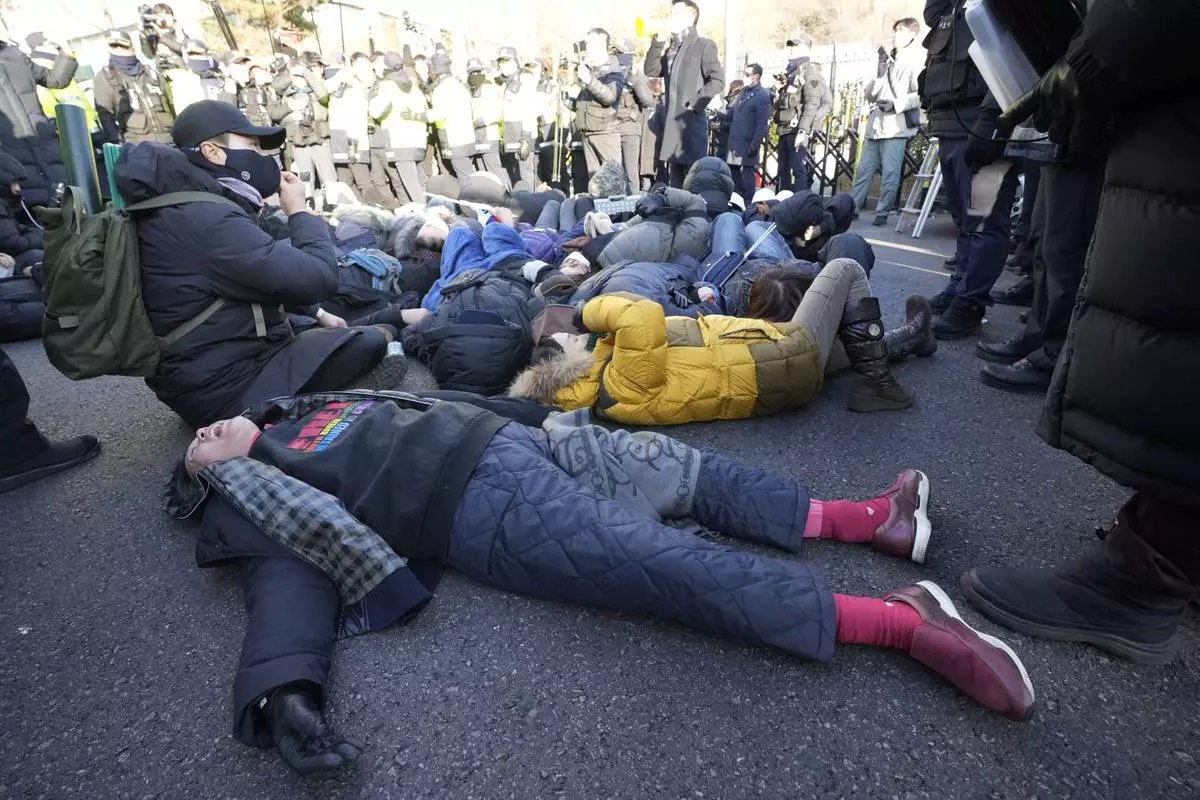
Supporters of impeached South Korean President Yoon Suk Yeol lie down on the ground as Yoon faces potential arrest after a court on Tuesday approved a warrant for his arrest, near the presidential residence in Seoul, South Korea, Thursday, Jan. 2, 2025. (AP Photo/Ahn Young-joon)
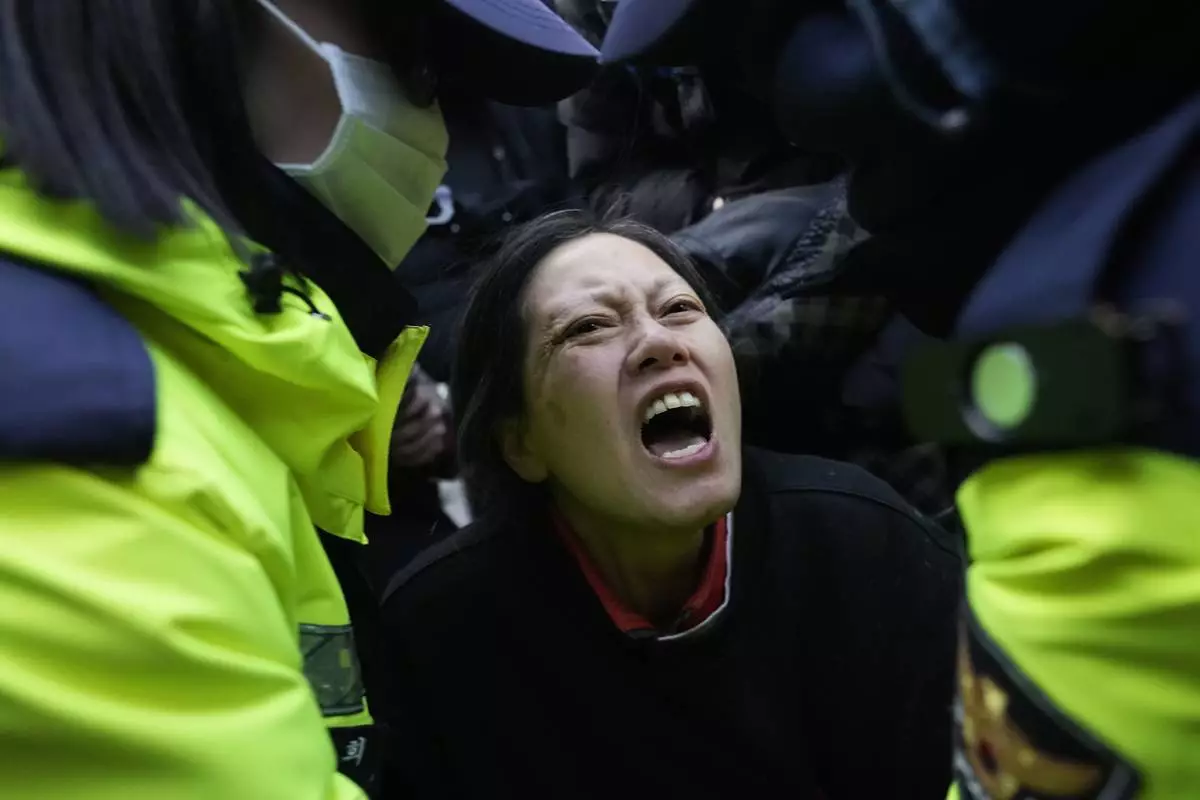
Police officers escort away a supporter of impeached South Korean President Yoon Suk Yeol as Yoon faces potential arrest after a court on Tuesday approved a warrant for his arrest, near the presidential residence in Seoul, South Korea, Thursday, Jan. 2, 2025. (AP Photo/Ahn Young-joon)
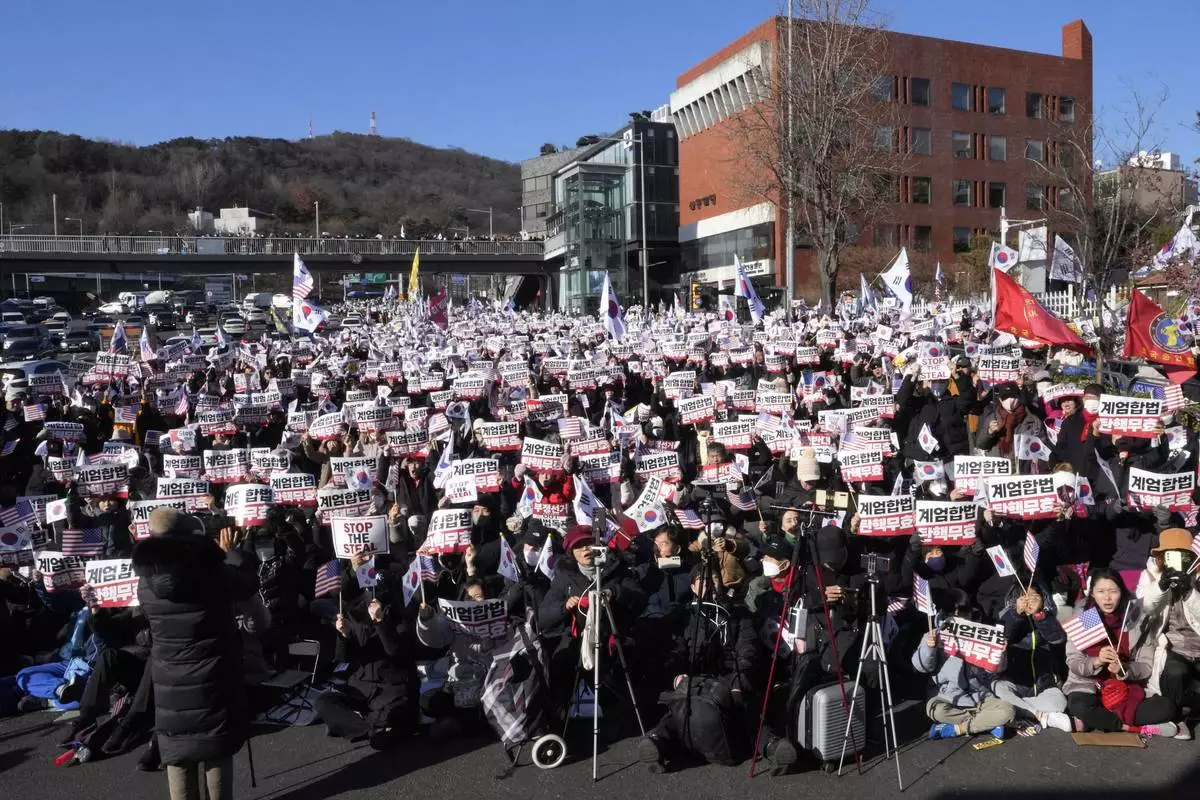
Supporters of impeached South Korean President Yoon Suk Yeol stage a rally to oppose a court having issued a warrant to detain Yoon, near the presidential residence in Seoul, South Korea, Thursday, Jan. 2, 2025. The signs read, "Oppose impeachment." (AP Photo/Ahn Young-joon)
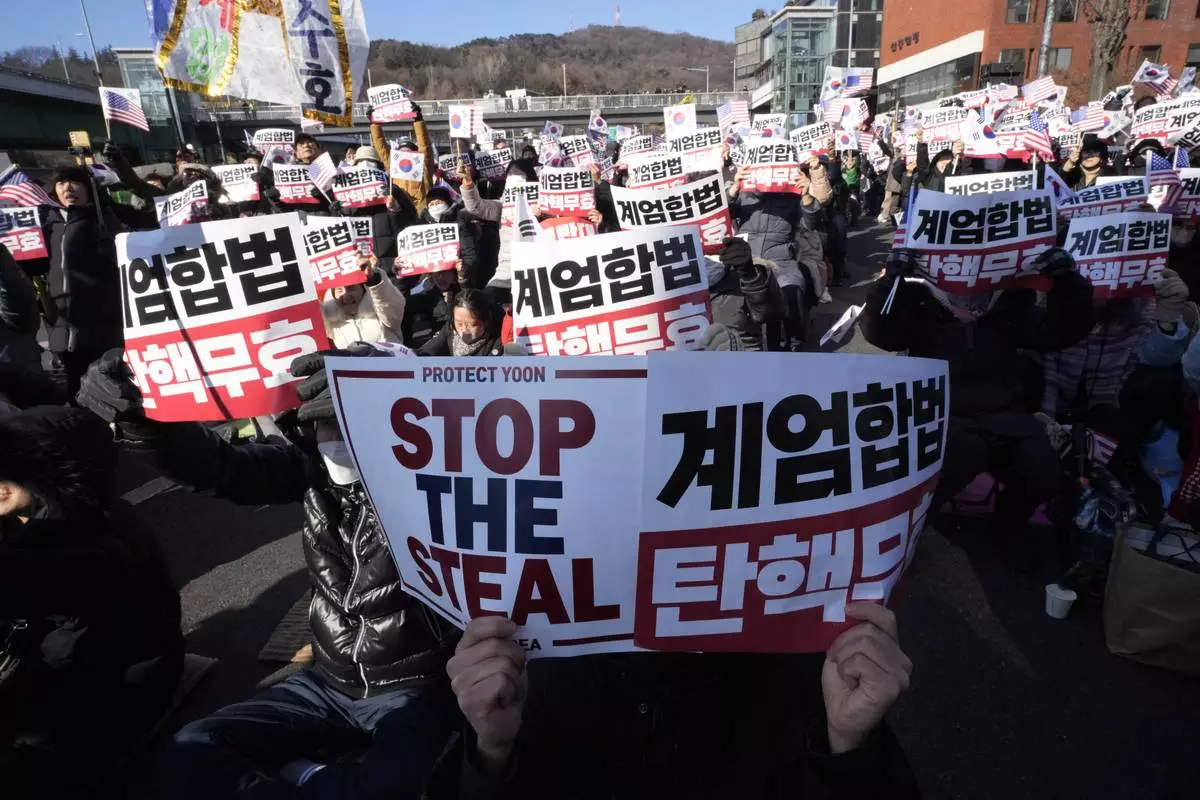
Supporters of impeached South Korean President Yoon Suk Yeol stage a rally to oppose a court having issued a warrant to detain Yoon, near the presidential residence in Seoul, South Korea, Thursday, Jan. 2, 2025. The signs read, "Oppose impeachment." (AP Photo/Ahn Young-joon)
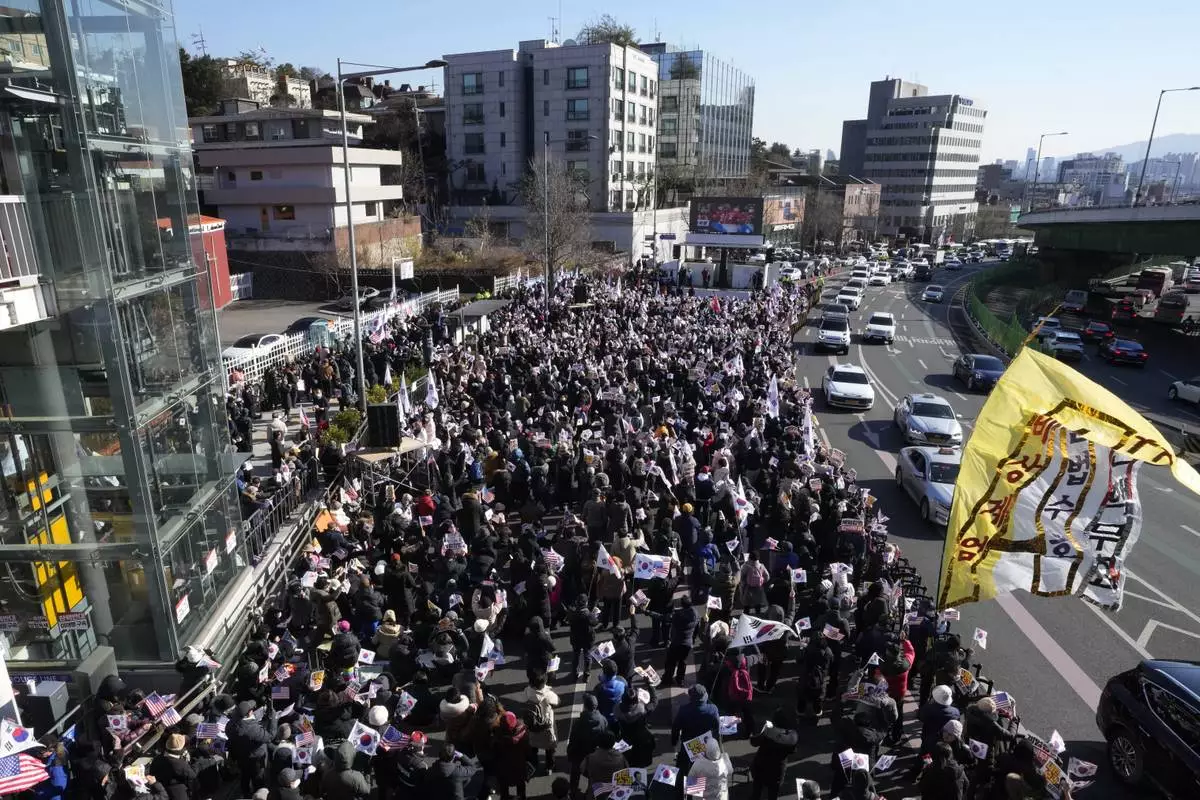
Supporters of impeached South Korean President Yoon Suk Yeol stage a rally to oppose a court having issued a warrant to detain Yoon, near the presidential residence in Seoul, South Korea, Thursday, Jan. 2, 2025. (AP Photo/Ahn Young-joon)
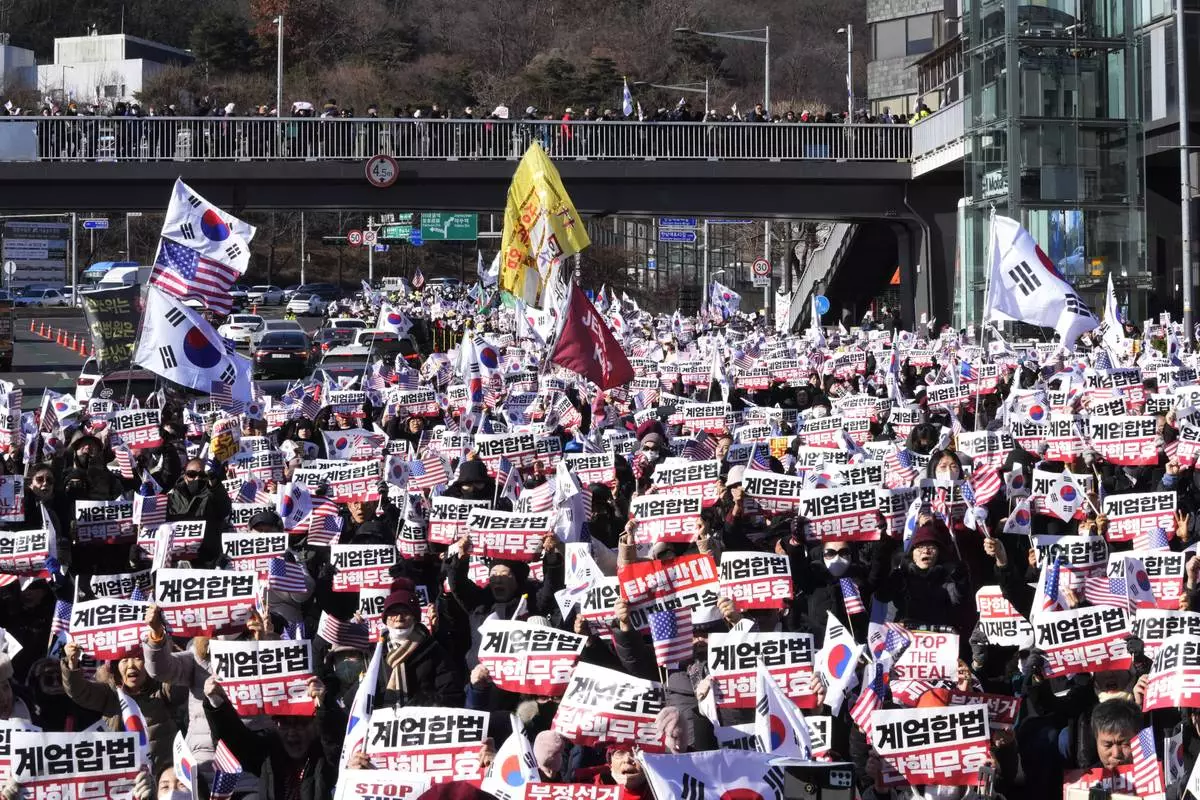
Supporters of impeached South Korean President Yoon Suk Yeol stage a rally to oppose a court having issued a warrant to detain Yoon, near the presidential residence in Seoul, South Korea, Thursday, Jan. 2, 2025. The signs read, "Oppose impeachment." (AP Photo/Ahn Young-joon)
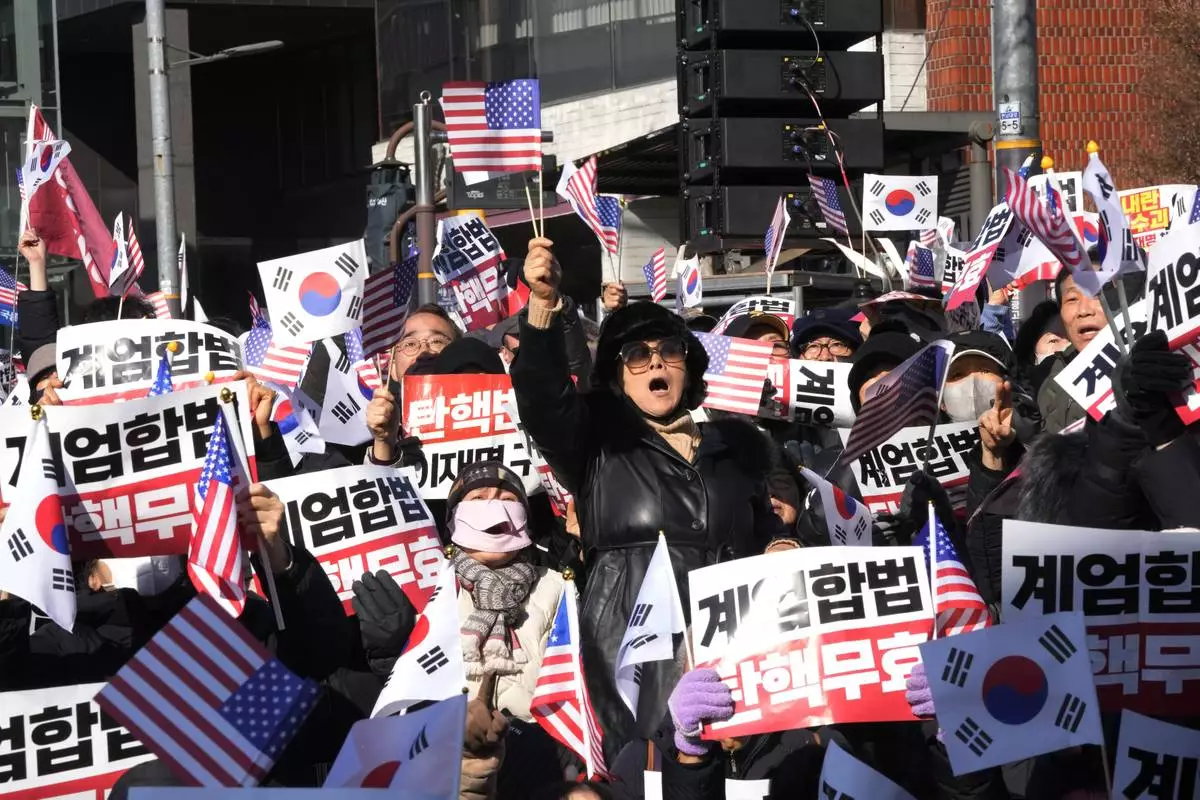
Supporters of impeached South Korean President Yoon Suk Yeol stage a rally to oppose a court having issued a warrant to detain Yoon, near the presidential residence in Seoul, South Korea, Thursday, Jan. 2, 2025. The signs read, "Oppose impeachment." (AP Photo/Ahn Young-joon)
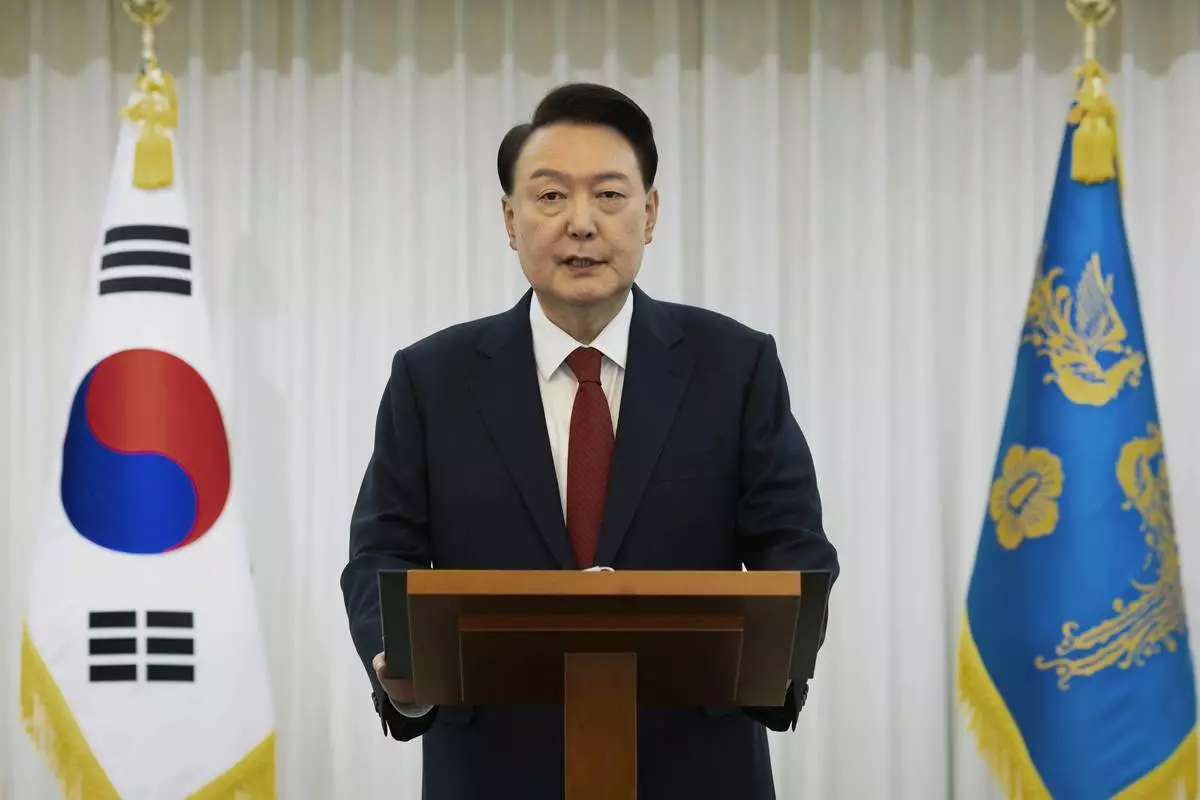
FILE - In this photo provided by the South Korean President Office, the country's President Yoon Suk Yeol speaks at the presidential residence in Seoul, South Korea, Dec. 14, 2024. (South Korean Presidential Office via AP, File)



























